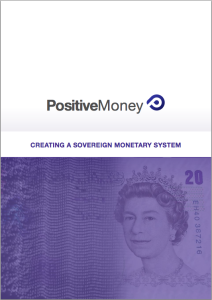Why Central Banks Should Give Money Directly to the People

“If I Told You We Could End Recessions, Reduce Inequality, And Not Skin The Rich To Do It…Might You Be Interested In That?” – this was the original title of an article that came out in the US magazine Foreign Affairs in their September/October issue.
“Print the money but cut out the middlemen and hand the cash straight to the people instead” – this idea has been presented there by Mark Blyth, economics professor at Brown University, and Eric Lonergan, a London-based hedge-fund manager in their article that was published with a shorter title “Print Less but Transfer More”.
They suggest that central banks should write a cheque to every household instead of pursuing policies that ramp up asset prices and make the financial system less stable (or, if they wanted to tackle growing inequality, just to the poorest 80% of households).
This proposal represents one of 4 options for spending newly created money into circulation as proposed by Positive Money in the Sovereign Monetary system:

to finance additional government spending
to finance tax cuts (with newly created money substituting for the lost tax revenue)
to make direct payments to citizens, with each person able to spend the money as they see fit (or to invest or pay down existing debts)
to pay down the national debt
You can read the article – or listen to its audio version – here
It’s well past time, then, for U.S. policymakers — as well as their counterparts in other developed countries — to consider a version of Friedman’s helicopter drops. In the short term, such cash transfers could jump-start the economy. Over the long term, they could reduce dependence on the banking system for growth and reverse the trend of rising inequality. The transfers wouldn’t cause damaging inflation, and few doubt that they would work. The only real question is why no government has tried them.
The main reason governments have not tried this approach, say the authors, is the widespread belief that it will trigger hyperinflation.
Unless one subscribes to the view that recessions are either therapeutic or deserved, there is no reason governments should not try to end them if they can, and cash transfers are a uniquely effective way of doing so. For one thing, they would quickly increase spending, and central banks could implement them instantaneously, unlike infrastructure spending or changes to the tax code, which typically require legislation. And in contrast to interest-rate cuts, cash transfers would affect demand directly, without the side effects of distorting financial markets and asset prices. They would also would help address inequality — without skinning the rich.
Ideology aside, the main barriers to implementing this policy are surmountable. And the time is long past for this kind of innovation. Central banks are now trying to run twenty-first-century economies with a set of policy tools invented over a century ago. By relying too heavily on those tactics, they have ended up embracing policies with perverse consequences and poor payoffs. All it will take to change course is the courage, brains, and leadership to try something new.
You can read the article – or listen to its audio version – here